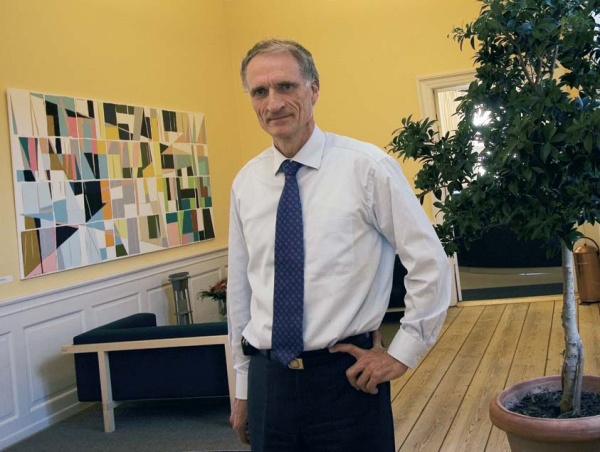
|

Democracy in the SchoolThe schools have a huge responsibility with regards to teaching the students about democracy.Primary and Lower Secondary Schools and other educational institutions are key institutions in relation to the fundamental values of democracy. The democracy is constantly developing and debated in public, and the educational institutions shall reflect this development. Thus the educational institutions have a huge responsibility with regards to teaching the students about democracy. A democracy implies that its citizens accept a responsibility for the structure and development of the society. Thus the Primary and Lower Secondary School and General and Vocational Upper Secondary Education shall provide students with skills that make them able to deal with and influence their surroundings. The Primary and Lower Secondary School and General and Vocational Upper Secondary Education are democratic meeting places for boys and girls with different social and cultural backgrounds. The purpose of teaching the fundamental democratic values are to ensure that the students become democratic citizens, learn to function in a democratic context, and acquire knowledge of the structure of democracy. Since 1975 teaching democracy has been a part of the objects clause of the Primary and Lower Secondary School, and since 2002 the Private Independent Schools Act has directly stated that the private schools shall prepare the students to become citizens in a free society based on democracy. The individual student shall learn to debate common social issues, and learn to express their thoughts and feelings clearly and effectively – and not least learn to debate in a democratic fashion in respect of alternative arguments. This personal development is a continuous process during the entire academic career of the student. Thus education in democracy shall deal with other aspects than the basic teaching in formal democratic decision-making procedures. It is also essential that students learn to communicate in a democratic fashion, and that teachers are able to solve daily problems in a constructive way.
Interview
We must fight the democracy-blindnessThe Primary and Lower Secondary School and General and Vocational Upper Secondary Education shall become better to comply with the letter of their objects clauses with regards to intellectual freedom, equality, and democracy, says Bertel Haarder, Minister for Education, who is concerned about the signs of blindness of democracy that are evident among newer generations. The foundation for all teaching in the Primary and Lower Secondary School and in General and Vocational Upper Secondary Educational institutions is the objects clauses, which the schools are obliged to comply with. Unfortunately, says Bertel Haarder, some schools fail to live up to their obligation to teach the students about the concept of citizenship, and right and duties in a liberal democracy: “We experience that an increasing number of youngsters have no clear notion of what democracy means, and this has caused problems that have surprised us all. This applies to both immigrants as well as Danish children. They are blind to the concept of democracy, and have not sufficient knowledge of what it means. Thus we need to focus more on democratic principles in the school system,” says Bertel Haarder. This blindness of democracy is not exceptional for the generations of today. According to Bertel Haarder, history shows that each new generation has their form of democracy-blindness, and each generation must reconstitute the democracy: “In the 1930s and 1940s, the Fascist leaders of Germany and Italy infatuated among others Danish intellectuals, and in the 60s and 70s, communist dictators were hailed on universities and at folk high schools.” Democracy Ensures Freedom of ReligionAccording to Bertel Haarder, the blindness of democracy of today could be as damaging as the ones of the past. “Some youngster claim e.g. that their religion contradicts with democracy. Frankly, it is the opposite. In reality, democracy ensures freedom of religion, even the right to be a religious fundamentalist.” The Minister for Education disagree with those who suggest that – in order to prevent any discrepancy between religion and democracy – we should introduce the secular state banning religious symbols in public places: “This is not the solution. See how we come to terms with the issue in the Primary and Lower Secondary School. Here Christian studies is a common subject that involves readings from the bible and hymn singing. Even though the subject is informative and not preaching, we have chosen to open up for exemption from the course. Nevertheless, only 0.25 percent of the students in Copenhagen have been exempted, and only 0.69 percent of the bilingual students have been exempted from attending Christian studies.” Increased Awareness on Teaching Democracy at Teachers Training CollegesBertel Haarder stresses that the awareness of teaching fundamental values of democracy and being in compliance with the objects clauses, should also mark the new teachers training education. “As an integrated part of the compolsary subjects, we need to make sure that the democratic obligations are taken seriously. I have however rejected Professor Ove Korsgaard’s proposal to introduce citizenship as a common subject in the Primary and Lower Secondary School. We have already a substantial number of common subjects. But it might be a good idea to introduce citizenship as an integrated part of the common subjects, which naturally means that we shall educate the teachers to comply with this task and combat blindness of democracy,” says Bertel Haarder.
|
|||||||
|
To the top of the page |
